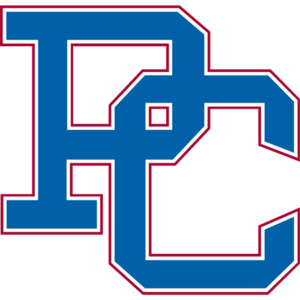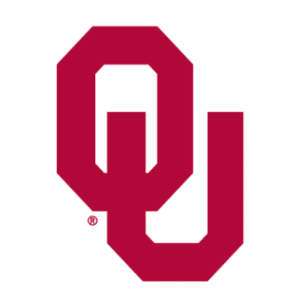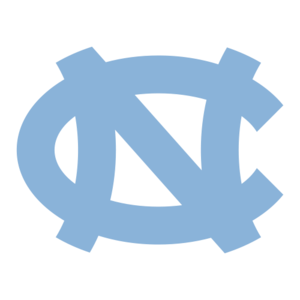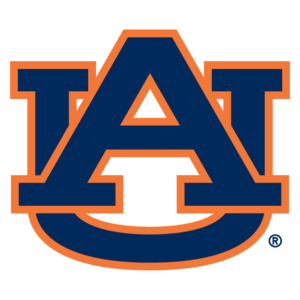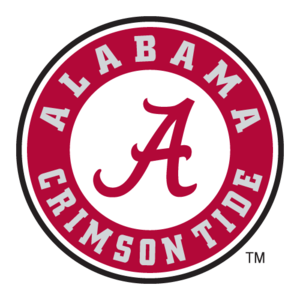The full women’s NCAA Tournament bracket has been set with South Carolina as the No. 1 overall seed.
(Editor’s note: This is part of the Bracket Central Series, an inside look at the run-up to the men’s and women’s NCAA Tournaments, along with analysis and picks during the tournaments.)
With just a few days until Selection Sunday, much of the bracket is set. Outside of the upcoming Ivy League championship, no other mid-major conference tournament is likely to influence the at-large bids, with perhaps the exception of Middle Tennessee.
Advertisement
Get your women’s March Madness printable bracket
Though some teams are essentially locked into the field because of their strong resumes, which teams have the most ability to fluctuate in seeding?
You can look at many and say, “Yeah, that’s a tourney team,” but also simultaneously be unsure of where that team may concretely be seeded. I have projections and ideas, but with how open-ended the criteria for seeding is, that leaves room for intrigue when looking at a select few cases.
| Last four in | First four out | Next four out | Last four byes |
|---|---|---|---|
Marquette | Columbia | Saint Joseph's | UNLV |
Texas A&M | Mississippi State | Villanova | Michigan |
Arizona | Washington State | VCU | Vanderbilt |
Miami | Penn State | Washington | Auburn |
Multi-bid conferences
| Conference | Bids |
|---|---|
ACC | 9 |
SEC | 8 |
Big Ten | 7 |
Big 12 | 7 |
Pac-12 | 7 |
Big East | 3 |
WCC | 2 |
What makes West Virginia so hard to judge?
The Mountaineers had a stellar Big 12 season — the first with coach Mark Kellogg at the helm. I wasn’t sure what to make of this group after watching them a few times early in the season. I was impressed with their defensive tenacity and ball pressure. JJ Quinerly jumped off the screen immediately, showcasing her growth into a star as an upperclassman.
But when Penn State came to town as a Top 25 team, West Virginia took the Nittany Lions to task with an 18-point drubbing. I was fully hooked after the first quarter.
The Mountaineers (24-7 overall) went a solid 12-6 record in the Big 12. They’re ranked 21st in the NET and have just a single loss outside the NET top 35 (a close one at Oklahoma State).
The NET is just a starting point for the committee, but when considering it along with WVU’s record, your mind automatically goes to the Mountaineers deserving a No. 4 or No. 5 seed. I have the Mountaineers projected as the final No. 6 seed in the bracket. Why not higher?
The Mountaineers don’t have a bad loss on their resume, but I’m unsure how the selection committee will view their games against top-end opposition. West Virginia went 2-6 against the top five teams in conference play. Oklahoma is West Virginia’s best quality win, which solidified it as a No. 6 seed for me. But when looking at the totality, their steadiness and competitiveness against top-flight competition stands out, but they did not quite have the oomph to come out with a win. Finishing 323rd in nonconference strength of schedule and 67th in strength of schedule is notable. West Virginia lost a game by more than 10 points just once — its lone meeting with Texas.
Advertisement
But if the selection committee favors their strong points, do the Mountaineers earn a higher seed? If it more heavily considers record and wins against the NET top 25, do the Mountaineers drop a seed line? Considering other teams in the same range have bad losses on their resumes, I’ll be curious to see how the committee weighs that. West Virginia is one of the biggest mysteries heading into Selection Sunday.
Louisville could be a No. 5, 6 or 7 seed
I have the Cardinals slotted just one spot ahead of WVU on the seed list at No. 23. Conversely, Louisville played a strong nonconference schedule, finishing 32nd in nonconference strength of schedule (and 30th in overall strength of schedule).
Marquee nonconference wins over Gonzaga, Ole Miss and Washington stand out; All three were top 50 NET teams and Gonzaga was in the top 15. Louisville won its first game against Notre Dame, which I consider its best win.
What gets tricky is how the committee will view play down the stretch of the season. Louisville has gone 6-6 since the start of February, trading losses and wins each game. The ACC is arguably the deepest conference in the country this season from a competitiveness standpoint.
Yes, the Cardinals have that win over Notre Dame, but they wound up 2-5 against the ACC’s top four, including two losses to the Irish just one week apart. They were blown out by Connecticut in Hartford.
They largely handled business against teams they were “supposed to” beat, outside a close loss to Virginia, which has come on strong late in the year. Louisville separated itself from the middle of the league by beating Duke and Florida State by double digits.
So where does that leave the Cardinals? They’ve oscillated from a No. 5 to a No. 7 seed for me, and though I give weight to strong play toward the end of the year (consider Ole Miss), I’m ultimately unsure how the committee may handle Louisville’s case. There’s a significant range where Louisville lands.
Advertisement
Is Missouri Valley a two-bid conference?
Keep an eye out for Drake and the Missouri Valley. Drake has been in the field as an automatic bid, but the Bulldogs have been a bit underrated by the NET — and just generally by fans and media —- this season. They played a strong nonconference schedule (22nd in the country), picking up a significant win against Iowa State. They lost close in double overtime to Minnesota prior to Mara Braun’s injury and hung tight with Creighton before going 19-1 in MVC play.
I view Drake’s resume similarly as Middle Tennessee’s. If it makes the MVC championship game and loses a close game to Belmont (also a strong team), the Bulldogs have a better shot than many might think at making the field with an at-large bid.
Belmont played a similarly strong nonconference schedule but didn’t have the same marquee win as Drake. That puts the Bruins a bit further on the bubble for me. However, they have been neck and neck with Drake all season in the Missouri Valley, losing its two meetings by a combined 10 points.
The Bruins absolutely could win another showdown with Drake, and then we could be in conversation for a potential two-bid MVC.
Seed list
| Seed | Team | Automatic qualifier | Locked in |
|---|---|---|---|
1 | South Carolina | AQ | Yes |
2 | USC | AQ | Yes |
3 | Iowa | AQ | Yes |
4 | Stanford | ||
5 | Texas | AQ | Yes |
6 | UCLA | ||
7 | Ohio State | ||
8 | LSU | ||
9 | Notre Dame | AQ | Yes |
10 | NC State | ||
11 | UCONN | AQ | Yes |
12 | Oregon State | ||
13 | Virginia Tech | ||
14 | Indiana | ||
15 | Colorado | ||
16 | Kansas State | ||
17 | Gonzaga | ||
18 | Oklahoma | ||
19 | Utah | ||
20 | Syracuse | ||
21 | Baylor | ||
22 | Ole Miss | ||
23 | Louisville | ||
24 | West Virginia | ||
25 | Duke | ||
26 | Creighton | ||
27 | Florida State | ||
28 | Iowa State | ||
29 | Nebraska | ||
30 | Tennessee | ||
31 | Michigan State | ||
32 | Princeton | AQ | |
33 | North Carolina | ||
34 | Alabama | ||
35 | Kansas | ||
36 | Maryland | ||
37 | UNLV | AQ | Yes |
38 | Michigan | ||
39 | Vanderbilt | ||
40 | Auburn | ||
41 | Marquette | ||
42 | Texas A&M | ||
43 | Arizona | ||
44 | Miami | ||
45 | Green Bay | AQ | Yes |
46 | Middle Tennessee | AQ | |
47 | Drake | AQ | |
48 | Richmond | AQ | Yes |
49 | Toledo | AQ | |
50 | FGCU | AQ | |
51 | Fairfield | AQ | |
52 | South Dakota State | AQ | Yes |
53 | Marshall | AQ | Yes |
54 | Eastern Washington | AQ | Yes |
55 | Jackson State | AQ | |
56 | Chattanooga | AQ | Yes |
57 | Stony Brook | AQ | |
58 | Rice | AQ | Yes |
59 | Maine | AQ | |
60 | Norfolk State | AQ | |
61 | Cal Baptist | AQ | |
62 | Portland | AQ | Yes |
63 | Texas A&M-CC | AQ | Yes |
64 | Hawaii | AQ | |
65 | Holy Cross | AQ | |
66 | Presbyterian | AQ | Yes |
67 | Sacred Heart | AQ | |
68 | Tennessee Martin | AQ | Yes |
The Bracket Central series is part of a partnership with E*TRADE.
The Athletic maintains full editorial independence. Partners have no control over or input into the reporting or editing process and do not review stories before publication.
(Photo of JJ Quinerly: Peter Aiken / USA Today Sports)







